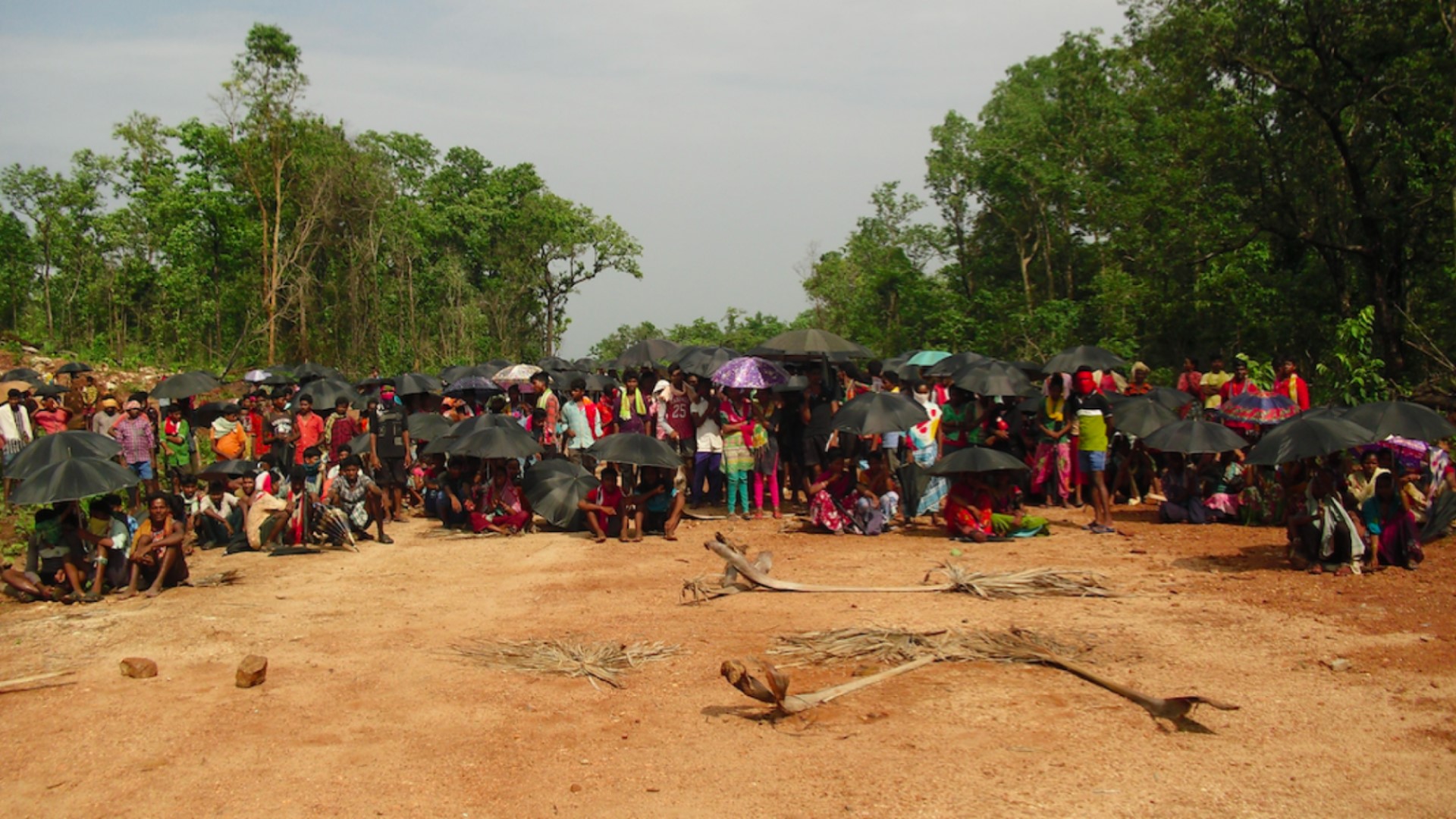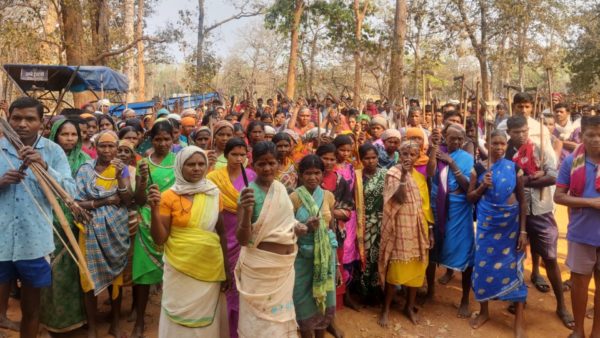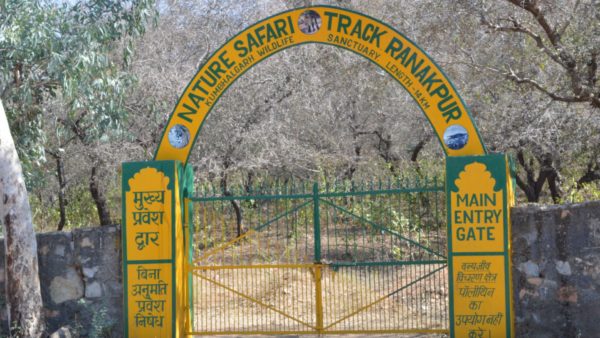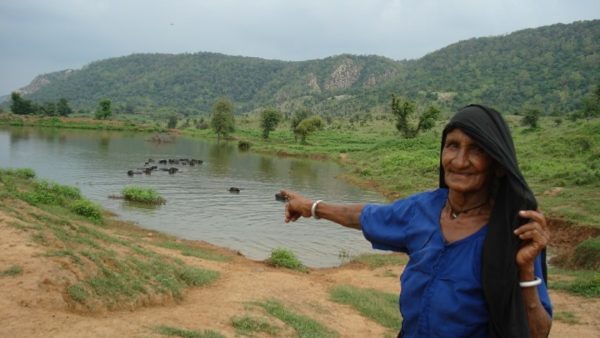The Adivasis of Bastar are the custodians of their bio-diverse forests in the Chhattisgarh state of India, and their traditional knowledge and cultural heritage have sustained the region’s ecology for generations
First published on 06/22/2025, and last updated on 06/23/2025
Shared by ICCA Consortium
A large group of organizations and individuals recently issued a solidarity statement condemning the escalating state violence on India’s Indigenous Adivasi communities in the Bastar region. The statement said that the “Government of India and its security forces” are escalating violence against “Indigenous Adivasi communities in the Bastar Division of the state of Chhattisgarh, in central India.”
The statement was launched by InSAF India and other collaborating organizations and signed by over fifty human rights, climate justice, and civil society organizations, as well as 130 individuals worldwide.
The statement said that the government of India has steadily allowed extractive industries to encroach on Adivasi lands. Profit-driven mining enterprises, operating under public-private partnerships and masquerading as development, have met with strong resistance from the Adivasi people.
“This escalation underscores the complete negation of universally recognized human rights by the Government of India in a resource-rich region that has come to be characterized by a longstanding cycle of forced displacement, dispossession, and wrongful and illegal appropriation of Adivasi land and extensive militarization.”
A press release sent by InSAF India, associated with the statement, mentioned that the region “is witnessing an unprecedented militarization under ‘Operation Kagar’ – a counterinsurgency campaign by the Indian state.”
- Link to the press release (PDF file)
- Link to the statement (PDF file)
The statement reiterated that there should be an immediate end to state violence with the demilitarization of Bastar, enforcement of constitutional protections for Adivasi communities, halt to all land acquisition without Free, Prior, and Informed Consent, protection of Indigenous human rights defenders, and accountability for all violations of human rights and international law.
InSAF India said that the international statement was launched for signatures in November 2024. Since then, state violence has continued to escalate, with an exponential increase in the number of people killed and other human rights violations.
Below, we are sharing (direct quote without any changes) the call for action from the statement:
What is unfolding in Bastar is not merely a territorial conflict or insurgency—it is a struggle for survival, dignity, and the recognition of Indigenous rights in the face of state violence and corporate greed.
We do not use these words lightly. The situation in Bastar demands immediate and decisive action. People across the world must act now to end the cycle of repression and to ensure that the voices of Adivasi communities are heard and respected. Silence in the face of the Government of India’s atrocities would make the world complicit in the erasure of indigenous communities in this region.
We, therefore, call on people all over the world to demand:
Immediate Cessation of State Violence: Demand an immediate end to all forms of state violence against the Adivasi communities in Bastar, including extrajudicial killings, arbitrary arrests, and torture. The ongoing violence, carried out under the pretext of counterinsurgency, must cease immediately, and those responsible for human rights violations must be held accountable.
Demilitarization of Bastar: Call for the urgent demilitarization of Bastar and the dismantling of military camps in the region. The extensive militarization, which has transformed Bastar into one of the world’s most militarized zones, must be reversed. The Government of India must prioritize peaceful dialogue and political engagement with Adivasi communities over military and security measures. The Adivasis’ legitimate demands for autonomy, land rights, and self-determination must be addressed through political solutions, not violence.
Compliance with Supreme Court Orders: Demand that the Government of India fully complies with the 2011 Supreme Court order prohibiting the recruitment of Adivasi youth for military operations. This practice violates both domestic and international law.
Respect for Constitutional and Legal Protections: Demand full enforcement of constitutional and legal protections for Adivasi communities, including the Forest Rights Act (FRA), Panchayats (Extension to Scheduled Areas) Act (PESA), and the Fifth Schedule, to protect Adivasi land from state and corporate encroachment.
End to Land Grabbing and Adherence to the Principle of Free, Prior, and Informed Consent (FPIC): The Government of India must halt all plans to acquire Indigenous lands for military, mining, or industrial purposes without the Free, Prior, and Informed Consent (FPIC) of affected Adivasi communities. Any land use must be contingent on Adivasi consent, free from coercion. This includes the planned acquisition of 54,543 hectares of the Abujhmad forest for an Indian Army training range.
Protection of Human Rights Defenders and Activists: Demand the protection of Adivasi human rights defenders from threats, arrests, and harassment. End the unlawful detention of activists, including members of Moolvasi Bachao Manch and Maad Bachao Manch, and stop the repression of Indigenous movements.
Accountability for Violations of Human Rights and International Law: Hold the Government of India accountable for violations of international law and human rights in Bastar, including the use of drone surveillance, mortar bombings, and military operations that cause ecological harm and loss of life. Those responsible must face justice.



